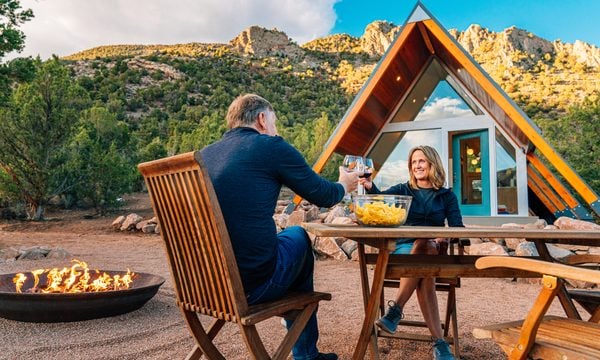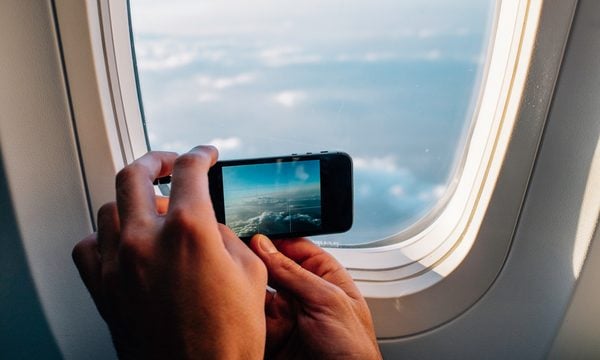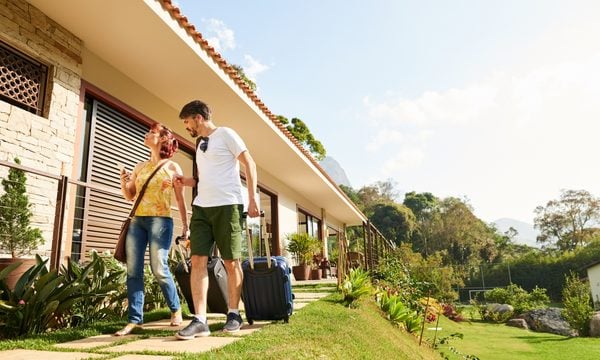Why It’s Worth Booking Airbnbs for a Week or Longer
Longer stays benefit both guests and hosts. Some hosts even offer extended stay discounts.
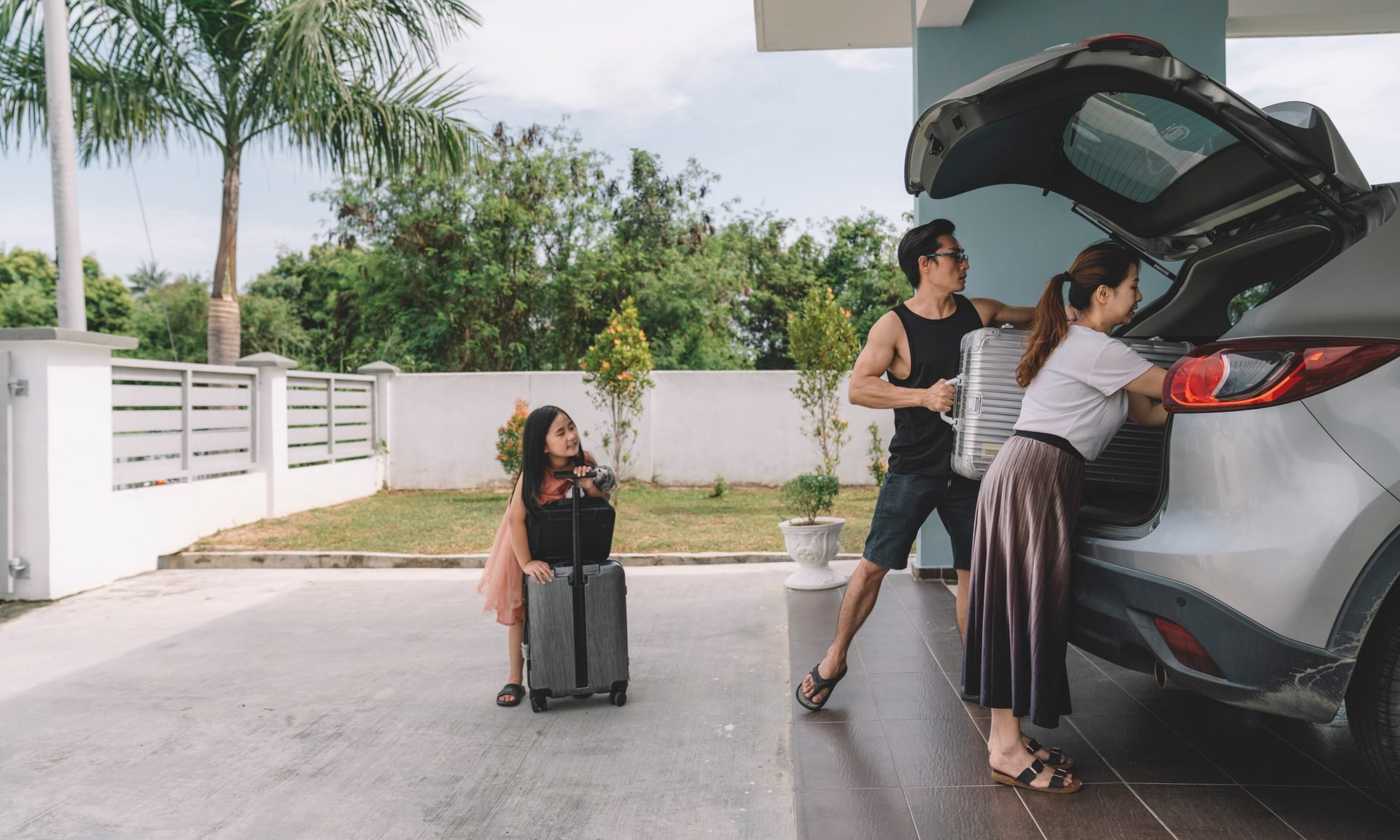
Many or all of the products on this page are from partners who compensate us when you click to or take an action on their website, but this does not influence our evaluations or ratings. Our opinions are our own.
If you prefer vacation rentals like Airbnbs to hotels, then taking an extended stay can pay off — and not just because it's more time on vacation and less time at home. Maybe you’re a lucky member of the labor force who can work remotely, so you choose to log on throughout an extended vacation. Perhaps you just have an abundance of vacation time to burn and are ready for a long getaway. For travelers spending more than a week out on the road, it might be cheaper to stay in an Airbnb than in a traditional hotel.
After all, Airbnb (and many vacation rental alternatives, including Vrbo) makes it easy for hosts to apply discounts to weeklong reservations. Some hosts offer even greater discounts for monthlong reservations.
But how much cheaper are those extended-stay Airbnb discounts? Are there any significant savings in committing to one weeklong rental versus multiple, shorter stays?
A June 2022 NerdWallet analysis looked at data from 1,000 U.S. Airbnb reservations with check-in dates in 2022 or 2023 that encompassed a range of locations, sizes and quality. The analysis only considered "entire place" properties, as opposed to shared homes. The data was used to compare the cost of staying in the same rental for one day, seven days or 30 days to determine the savings per night of committing to longer trips, versus staying a single night:
| Median price per night | Percent cheaper per night versus 1-night stay | |
|---|---|---|
| 1-night stay | $314. | N/A. |
| 7-night stay | $213. | 32%. |
| 30-night stay | $169. | 46%. |
How much is Airbnb for a week?
On average, the nightly rate for a seven-night Airbnb stay turns out to be 32% cheaper than the nightly rate for a one-night stay. Stick around for a month to bring your nightly rate even lower — a 46% discount for committing to 30 days versus just one.
Some cities offer even bigger discounts for long-term stays. In Chicago, 30-day trips come out 58% cheaper per night versus staying in the same rental for just one night. Weekly stays are 41% cheaper per night than one-night stays.
Not all cities offer such deep discounts. In Tampa, you save a little, but not much. Seven-night stays are 16% cheaper per night versus a one-night stay.
Here are some of the percent differences among a handful of major cities analyzed:
Interestingly, some cities offer big discounts for a weeklong stay, but not much more for a monthlong stay. If you’re spending a month in Southern California and are going to stay at an Airbnb, you likely won’t save a whole lot by making Los Angeles your home base for the entire month versus just a week. So go ahead and spend a week in the City of Angels, but perhaps venture down south and spend some nights in Orange County and San Diego, too.

Why Airbnbs are cheaper per-night for long stays
Many hosts offer discounts to incentivize people to commit to longer stays. That’s because long-term guests save hosts from having to do the multiple check-ins and cleanings that come with short-term stays. For guests, the monetary benefits of longer stays don’t stop at reservation discounts. There are savings lurking in other places as well.
Lower per-night cleaning fees
Most Airbnbs charge cleaning fees, and while these vary by property, some can be pretty hefty. These one-off fees are intended to cover the extra expenses hosts incur when resetting homes between guests, such as washing sheets and towels, or vacuuming up the crumbs left behind.
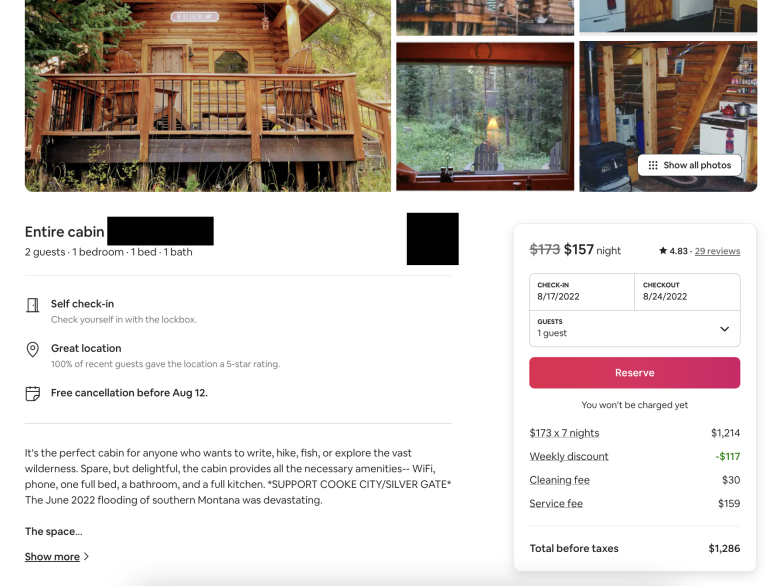
Few Airbnbs will clean your rental mid-stay, so cleaning fees are usually only charged once and are the same price no matter the length of your stay. Thus, a $30 cleaning fee amortized over 30 nights is just $1 per night. But a $30 cleaning fee on a one-night stay is still $30, which is why it’s more economical to stay in an Airbnb for more than one night.
Lesser (or no) taxes
Some cities don't charge taxes for longer stays, or they tax extended stays at a lower rate than nightly stays. For example, while Dallas charges a 7% hotel occupancy tax, it considers people who stay in one place for 30 days or more to be permanent residents, at which point the hotel occupancy tax does not apply.
In Scottsdale, Arizona, Airbnb stays of 29 days or fewer are subject to a 5% transient lodging tax. However, those staying for longer than 29 days are considered renters and are taxed the same as other Scottsdale renters, at only 1.75%.

By signing up, you will receive newsletters and promotional content and agree to our Terms of Use and acknowledge the data practices in our Privacy Policy. You may unsubscribe at any time.
Other ways staying in one place can save money
Whether you’re staying in an Airbnb or not, there are plenty of other ways that longer trips can be more affordable than you think.
- You might be more likely to buy groceries for long stays, saving money on dining out.
- You won’t be moving suitcases between various lodgings, cutting down on how often you'll need to tip cab drivers and bellhops. (Plus, you'll save time by not having to pack up for a new place every night.)
And then there’s the feeling that money can’t buy: slow travel. Stay in one place and you’ll live like a local, wandering off the beaten path. There’s a better chance you’ll meet new friends on the road and make memories other than waiting in line to check in and out of hotels.
Airbnb weekly stays are more cost effective
If Costco taught us that buying in bulk is cheaper, Airbnb affirmed it. The nightly rate for booking an Airbnb is, on average, a 32% discount when you commit to at least seven nights versus just one. It’s an even steeper 46% discount when you commit to 30 days.
Remember, not every Airbnb offers extended-stay discounts — and some discounts are more generous than others. Do your own comparison shopping before booking. It might not cost a ton more to turn that long weekend trip into a full week or month of travel.
Sam Kemmis and JT Genter contributed to this article.
Article sources
NerdWallet writers are subject matter authorities who use primary,
trustworthy sources to inform their work, including peer-reviewed
studies, government websites, academic research and interviews with
industry experts. All content is fact-checked for accuracy, timeliness
and relevance. You can learn more about NerdWallet's high
standards for journalism by reading our
editorial guidelines.
NerdWallet's 2026 Best Premium Travel Credit Card
Capital One Venture X Rewards Credit Card 
Travel
Hotel

With a big sign-up bonus, travel credits, high rewards and airport lounge access, this card with luxury perks could be well worth its annual fee — which is lower than many competitors.
More like this
Related articles


